
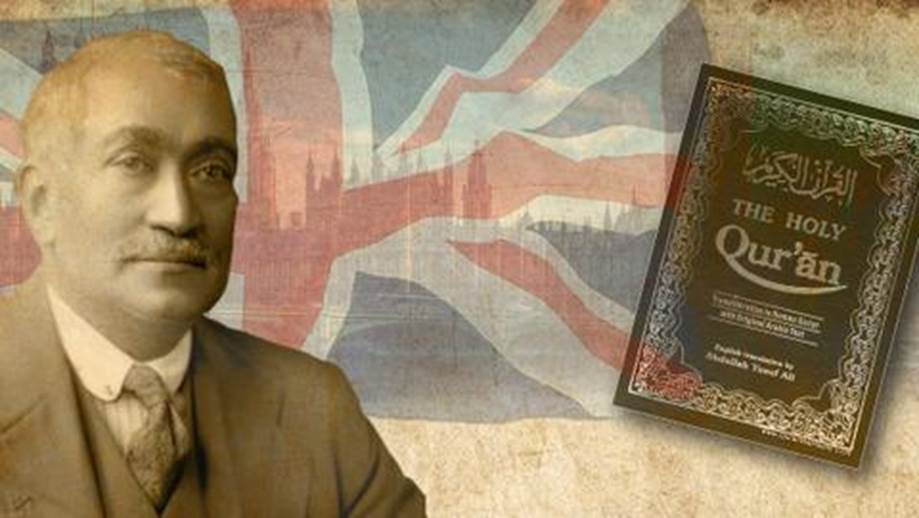
"Yousaf Ali's life began with a promise," writes M. A. Sherif, "swung between moments of darkness and summits of achievement and ended in tragedy. In a sense, it was like the history of British India." – PhotoTRT World
Abdullah Yousaf Ali
By Dr Asif Javed
Williamsport, PA
On a cold January day in 1953, a confused and sick looking Asian man was found by London Police sitting on a curbside, taken to a local hospital, and was admitted. He died the following day. He had no one with him and no one came to visit or enquire about him. Neither the policeman nor the hospital staff had any idea of his identity. Little did they know that their patient with unknown identity was at one point the leading Muslim of his day, a CBE, had friends in the House of Lords, and had represented India in the Paris Peace Conference after the First World War. The name of that unfortunate patient who died a lonely death on that cold January day was Abdullah Yousaf Ali (AYA). He appeared forlorn but just a few years earlier, things for him looked very different.
AYA was born in 1872 in Surat Gujrat in a blue-collar family. Although the fine details of his family and upbringing are not available, a comment made by someone is interesting. "AYA was a child born as adult who showed early seriousness and maturity, beyond his years." A brilliant student throughout, having passed BA in first division in Bombay, he proceeded to Cambridge on a scholarship. Having completed Tripos in 1895 and later Bar-at-Law from Lincoln's Inn, he joined the prestigious ICS (Indian Civil Service). He was posted in
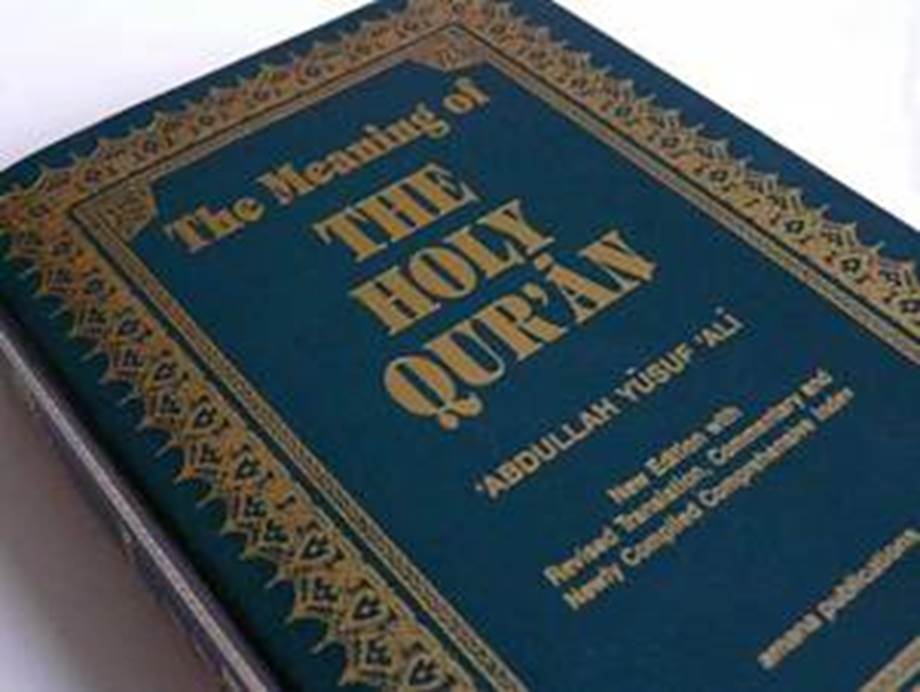
AYA would painstakingly go over the pages of a book written in Arabic. He had started the monumental task of the translation of the Holy Qur’an. Bit by bit, he continued working on his labor of love. As he would complete a chapter, it would be published from Lahore. The whole project took about eight years
UP and immediately impressed his superiors with his hard work and intellect. Having climbed the ladder fairly rapidly, he abruptly resigned from ICS in 1914 after only eighteen years of service. The resignation may have surprised his family and colleagues, but fate had chosen AYA for a lot more than the Indian Civil Service.
It seems that early on AYA had developed a strange fascination with the British Empire and remained an Anglophile to his last day. He was among those who passionately believed in India being part of the British Empire was mutually beneficial. He may have convinced himself to play the part of someone who could be a bridge between the East and West. This may explain his decision to get married to an English lady. The first marriage that produced four children ended in a bitter divorce. He later remarried another English lady with a similar result. But while his domestic life remained in turmoil and a source of frustration for him, he performed several important tasks for the British government.
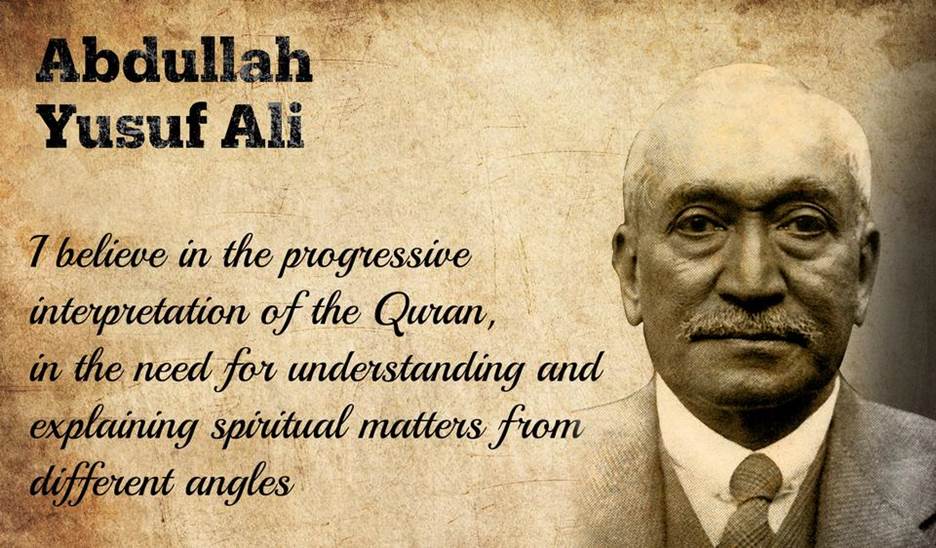
MPositive.in
AYA was sent on several assignments oversea by British government during the First as well as the Second World War. These included a speaking tour to Scandinavia, and an exhausting tour of the USA, Canada, Hawaii, and several countries in Far East. These were paid luxurious trips during which AYA would deliver his lecture to the audience promoting their loyalty to the British Empire. Being a Muslim, his criticism of the Ottoman Empire and support of Indian war effort for the British did hurt his image in India. But it was what he did at night that has turned out to be a far more significant work and has cemented his legacy.
AYA would painstakingly go over the pages of a book written in Arabic. He had started the monumental task of the translation of the Holy Qur’an. Bit by bit, he continued working on his labor of love. As he would complete a chapter, it would be published from Lahore. The whole project took about eight years.
Born in a Dawoodi Bohra family, AYA had moved to mainstream Islam. The details of how and when that transformation took place are not known. He was a practicing Muslim who tried to present a progressive Islam.
AYA lived through tumultuous times: The freedom movement was gathering momentum around him in India.
Although he was not active in politics, he could not have completely detached himself from the momentous events taking place around him.
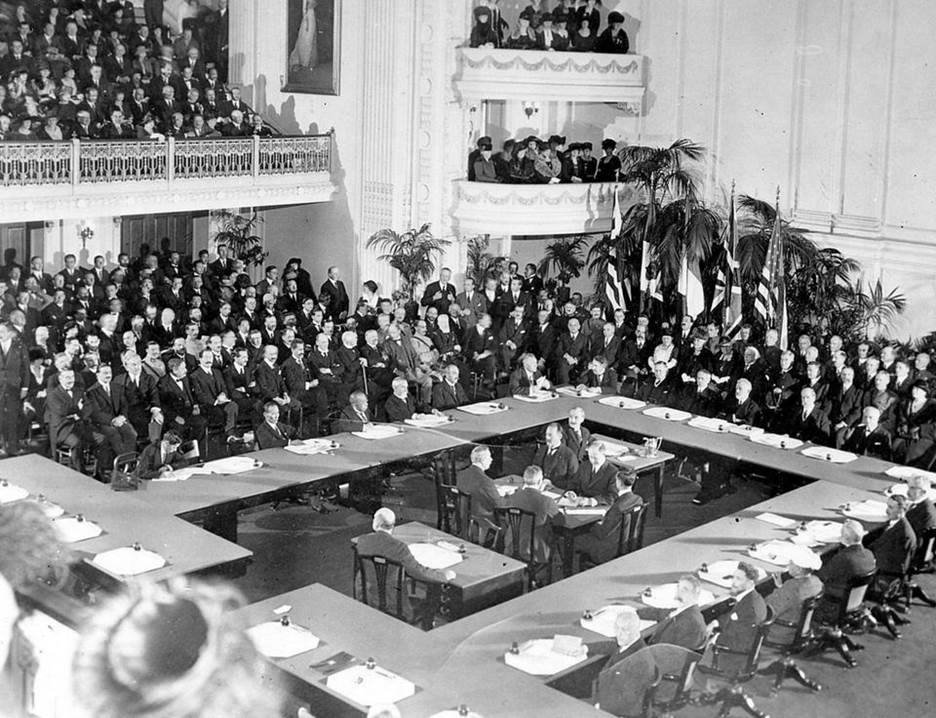
AYA attended the all-important Paris Peace Conference in 1919 – Picture courtesy Getty Images
AYA belonged to a brilliant generation of Indians who were born within two decades of each other. Just look at their names: AYA, born in 1872; Gandhi, born in 1868; Nehru, born in 1889; MA Jauhar, born in 1878; Mohd Ali Jinnah (MAJ), born in 1876; Allama Iqbal, born in 1877; Sh Abdul Qadir, born in 1872; Maulana Azad, born in 1888. Badruddin Tayyabji (the first Indian barrister of the Bombay High Court and the third president of Congress), and Syed Amir Ali (author of Spirit of Islam), though much older than him, were among his friends. Strangely, although AYA and MAJ were both born in Gujrat, went to the same school in Bombay, and passed through Lincoln's Inn within a few months of each other, they remained mostly detached from each other.
A restless soul throughout his life, AYA went through several jobs after he returned to India from England in 1920. For a while, he worked for Nizam of Hyderabad as Revenue Member of the Executive Council of State. Having resigned, he briefly practiced law at Lucknow since he was a qualified barrister but gave it up after a few months.
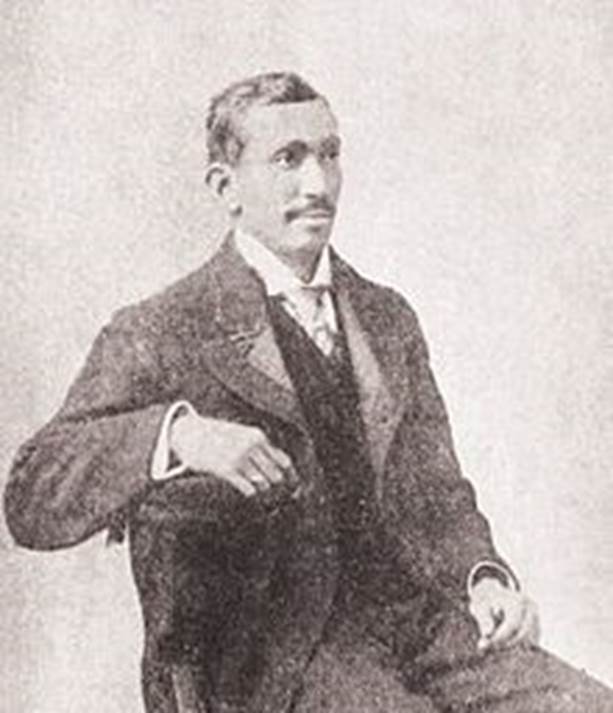
AYA in 1911 – Wikipedia
An intellectual par excellence, AYA was a sought-after speaker. The list of his speaking engagements is beyond the scope of this article. In Jan 1917, AYA chaired a meeting at Woking Mosque near London where Marmaduke Pickthall delivered a lecture. The audience on that day could not have known that the speaker and the man who presided over the event that day were going to be the authors of arguably the two best translations of the Holy Qur’an. Also, by a strange coincidence, both were to find their final resting place, next to each other one day, not far from Woking Mosque.
In 1940, he debated Krishna Menon, Nehru's man in the UK. It is not hard to speculate his debate stance. While Menon likely spoke in favor of of India's independence, AYA likely opposed it. AYA was present when the infamous former British Governor of Punjab Michael O 'Dwyer (blamed for Jallianwala Bagh massacre) was assassinated by Udham Singh in London. Over the years, AYA wrote several books and pamphlets.
In the 1930s he was appointed Principal of Islamia College, Lahore. It was his friend Iqbal who had persuaded Anjuman Himayat-e-Islam to hire him. It seemed a perfect fit for AYA since "at heart, he was an academic and a man of letters," notes Sherif. The Islamia College students were to play a leading role in the Pakistan Movement second only to that of Aligarh's. But that was down the road after AYA had left the college.
AYA spent several years in Lahore. His time in the city may have been the most fulfilling of his life. He stayed at Nedo's Hotel on the Mall (right where Avari stands today) and made several new friends. He was considered "one of the brightest of men in Lahore." While in Lahore, he did become the editor of Eastern Times for a while. It was at Lahore that he accepted the presidency of Tanziem, an organization set up to counter the militant Hindu revivalist organization Sanghatan. He was close to Sikandar Hayat, the Unionist Prime Minister of Punjab. However, AYA's pro-unionist stance created some controversy. Also, fed up with the politics at the college and within Anjuman Himayet-e-Islam, he resigned in 1937 and left for England. The following statement, reported by his biographer Sherif, shows that it was a bitter parting:
I had not imagined that so much human jealousy, misunderstanding and painful misrepresentation should pursue one who seeks no worldly gain and pretends to be no dogmatic authority.
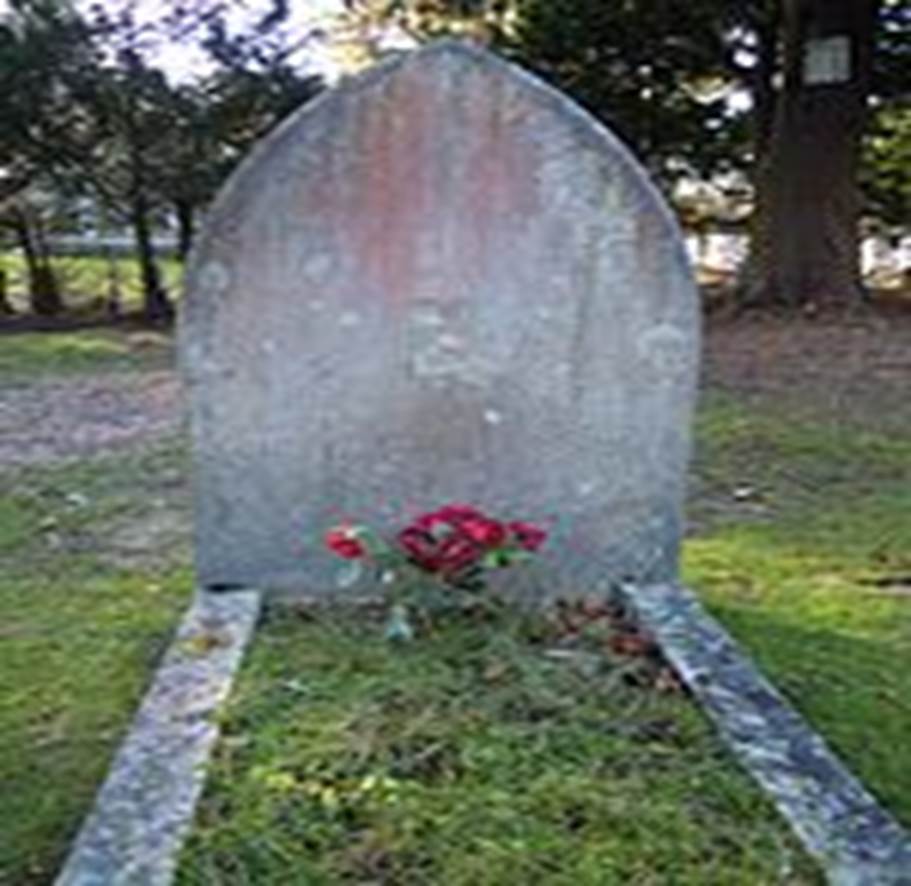
What has kept AYA's name alive, bright and shining, is his translation and interpretation of the Holy Qur’an. Over the years, its popularity has not diminished but soared. This is his real legacy
A man of his age (he was 65 in 1937) who had gone through so much in life deserved some peace in his twilight years. That was not to be since his domestic life was a disaster. While he had been divorced from his first wife since 1911, his four children from that marriage were also estranged from him. To make it worse, some were hostile to him. The strain of this led to the breakup of his second marriage. And so, despite having several children in England, he was essentially all by himself. With nothing else to do, he tried to keep busy by involving himself in socio-political events in and around London.
"He had an abiding faith in the British," writes Sharif. His marriages to two English women may have been due to this way of thinking. As the British made a hasty retreat from India in 1947, AYA's world suddenly came crumbling around him. He found himself lost. It is not clear what stopped him from going to Pakistan. It may have been due to his widely known pro-British stance or perhaps due to acrimonious departure from Lahore. He may have heard of the way Chaudhry Rahmat Ali was poorly treated in Pakistan after partition. Regardless, he decided to stay in UK. Most of his English friends were dead at that point. Those who were around may have found him less useful. His last days in London reveal a disheveled, frail, depressed looking old man, abandoned and forgotten by his family and British friends alike. The times had changed. Life had passed him by. He was not short of monetary resources. But he had nothing to do and nowhere to go. For a man of his ability and intellect, one who had been busy all his life, this must have felt terrible. In some ways, his last days were similar to Ch Rahmat Ali's who also died a lonely death in England.
A few years earlier, AYA had drawn up his will and had left the bulk of his estate (estimated to be 20,578 British Pounds) to Indian students pursuing higher education in UK. This was the final act of generosity by the former ICS officer who valued education. The fate of the huge collection of his books, which were to be donated to Islamia College, remains unknown. It never made it to its intended destination.
The world has changed drastically since AYA's times: his beloved British Empire has ceased to be an empire; his brilliant academic record probably has been surpassed many times over; CBEs come and go -- who really cares; ICS and its successor CSS lost its prestige decades ago. But what has kept AYA's name alive, bright and shining, is his translation and interpretation of the Holy Qur’an. Over the years, its popularity has not diminished but soared. This is his real legacy.
"Yousaf Ali's life began with a promise," writes Sherif, "swung between moments of darkness and summits of achievement and ended in tragedy. In a sense, it was like the history of British India."
Reference: Searching for Solace by M A Sherif
(The writer is a physician in Williamsport, PA and may be reached at asifjaved@comcast.net )
Back to Pakistanlink Homepage

